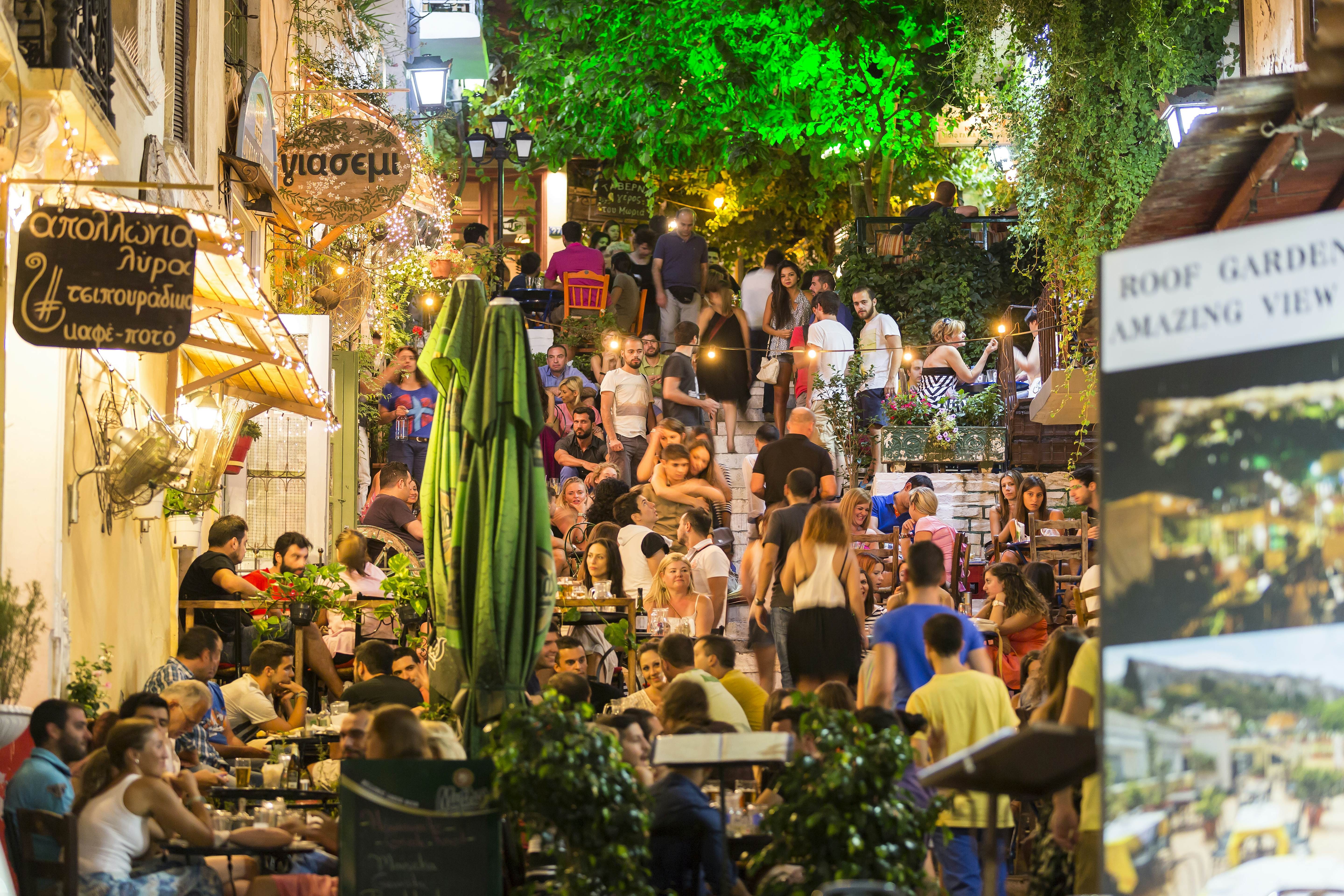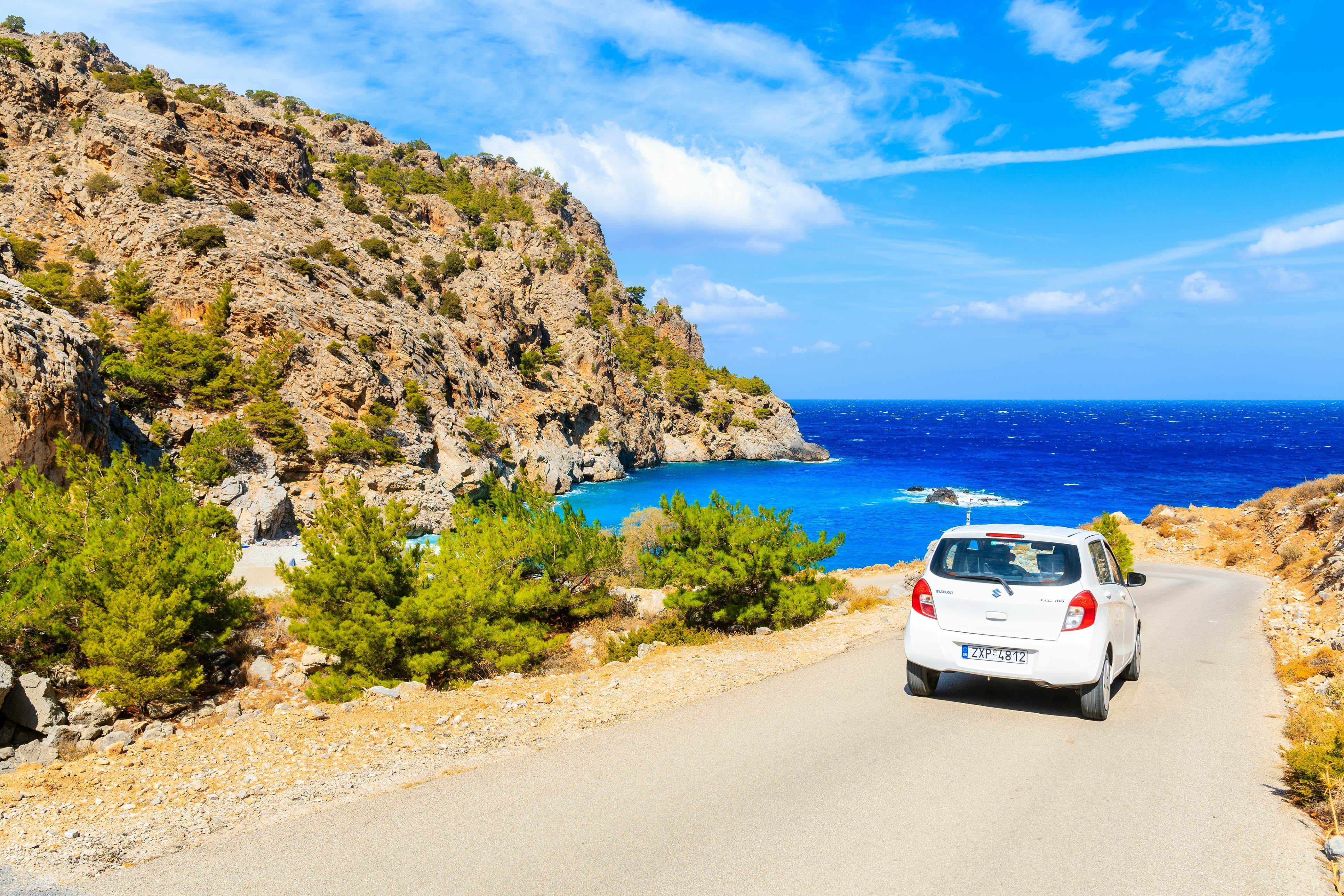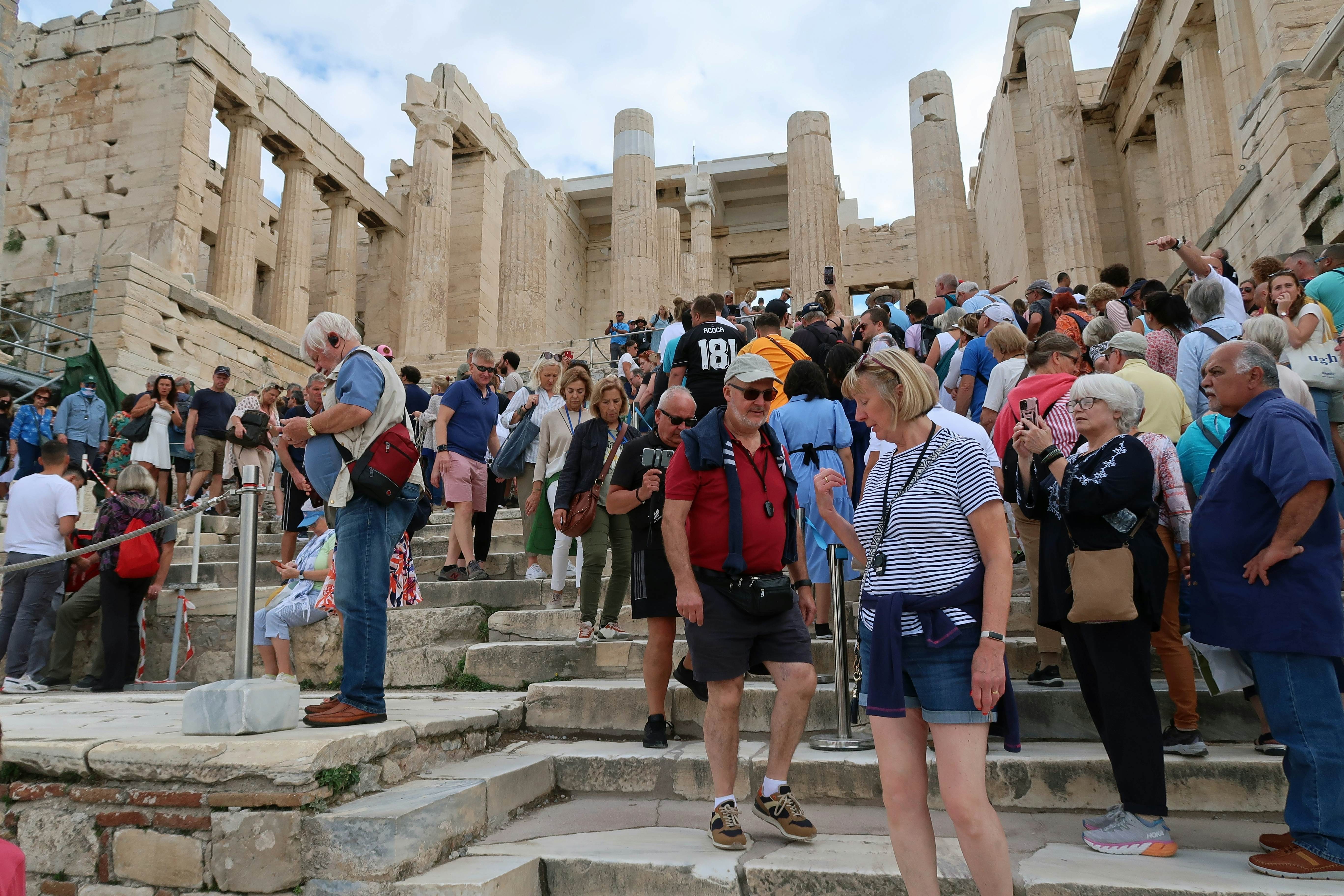Planning a trip to Greece? SIXT.VN understands the excitement, and we’re here to ensure your journey is seamless and unforgettable, especially if you’re considering adding a Vietnamese touch to your adventure. This guide provides essential insights on What To Know Before Traveling To Greece, offering practical tips and expert advice to help you make the most of your trip. With SIXT.VN, discover the beauty of Greece with confidence and ease, knowing you’re well-prepared for an amazing experience, maybe even inspired to explore similar services back in Vietnam!
1. Do I Need a Visa to Enter Greece?
Whether you need a visa to enter Greece depends on your nationality. Greece is part of the Schengen Zone, allowing citizens of over 60 countries to visit visa-free for up to 90 days within a 180-day period.
- Schengen Zone: This includes most EU countries, allowing visa-free travel between them.
- Visa-Exempt Countries: Citizens of the USA, Canada, Australia, and many others can enter Greece without a visa for tourism or business stays of up to 90 days.
- Visa Required: If your country is not on the visa-exempt list, you must apply for a Schengen visa. According to the Ministry of Foreign Affairs, you can find the full list here.
How to Apply for a Schengen Visa:
- Determine the Type of Visa: Apply for a tourist visa for travel lasting less than 90 days.
- Gather Required Documents: Include your passport, application form, photos, travel itinerary, proof of accommodation, and proof of sufficient funds.
- Apply in Advance: Apply at least 15 days before your intended travel date, but no more than three months in advance.
2. What is the Best Time to Visit Greece?
The best time to visit Greece depends on your preferences regarding weather, crowds, and cost. Each season offers a unique experience:
-
Summer (June – August): Ideal for beach lovers and those seeking vibrant nightlife. The weather is hot and sunny, perfect for swimming and sunbathing. However, this is peak season, so expect higher prices and larger crowds. According to a report by the Greek National Tourism Organization, summer sees the highest influx of tourists.
- Pros: Warm weather, ideal for water activities, lively atmosphere.
- Cons: High prices, crowded attractions, intense heat.
-
Shoulder Seasons (April – May & September – October): These months offer a sweet spot with pleasant weather, fewer tourists, and lower prices. It’s an excellent time for sightseeing, hiking, and exploring the islands.
- Pros: Mild weather, fewer crowds, lower prices.
- Cons: Some businesses may have reduced hours, weather can be unpredictable.
-
Winter (November – March): This is the off-season, with cooler temperatures and fewer tourists. While some islands may shut down completely, it’s a great time for budget travelers and those interested in exploring mainland Greece without the crowds.
- Pros: Lowest prices, peaceful atmosphere, ideal for cultural exploration.
- Cons: Cold weather, limited ferry services, some businesses closed.
3. Which Greek Island or Region Should I Visit?
Greece offers a diverse range of islands and regions, each with its unique charm. To make the most of your trip, focus on the areas that align with your interests.
- Popular Islands:
- Mykonos: Famous for its vibrant nightlife and beautiful beaches.
- Santorini: Known for its stunning sunsets and unique volcanic landscape.
- Crete: The largest island, offering a mix of beaches, historical sites, and hiking trails.
- Lesser-Known Gems:
- Amorgos: Ideal for hiking and exploring traditional villages.
- Kythira: A peaceful island with beautiful beaches and Venetian architecture.
- Mainland Regions:
- Peloponnese: Rich in ancient history, with sites like Olympia and Mycenae.
- Athens: The capital city, home to iconic landmarks like the Acropolis.
 Santorini view showcasing the blue domed churches and white buildings.
Santorini view showcasing the blue domed churches and white buildings.
Tips for Choosing an Island or Region:
- Interests: Consider what you want to experience – nightlife, history, beaches, or hiking.
- Duration: If you have limited time, focus on one or two islands or regions.
- Budget: Some islands are more expensive than others, so factor this into your decision.
4. How Far in Advance Should I Book My Trip?
Booking in advance is crucial, especially if you plan to travel during the peak season (July and August). Demand for accommodations, car rentals, and ferry tickets is very high during these months.
- Peak Season: Book at least 3-6 months in advance to secure the best prices and availability.
- Shoulder Season: Booking 2-3 months in advance is generally sufficient.
- Off-Season: You can often find good deals even booking closer to your travel dates.
Booking Tips:
- Flights: Use flight comparison websites to find the best deals.
- Accommodation: Book directly with hotels or use reputable booking platforms like Booking.com or Airbnb.
- Ferries: Purchase ferry tickets in advance, especially if traveling between popular islands.
- Car Rentals: Reserve your car well in advance, particularly if traveling during peak season.
5. What Kind of Clothing Should I Pack for Greece?
Packing the right clothing is essential for a comfortable trip to Greece. Consider the season and the activities you plan to do.
- Summer: Pack light, breathable clothing such as cotton or linen. Include swimwear, shorts, t-shirts, and sundresses.
- Shoulder Seasons: Bring layers as the weather can be unpredictable. Include light jackets, sweaters, and long pants.
- Winter: Pack warm clothing such as sweaters, coats, and scarves.
- Essentials:
- Comfortable Walking Shoes: Essential for exploring historical sites and navigating cobblestone streets.
- Swimwear: If you plan to visit the beaches.
- Sun Hat and Sunglasses: To protect yourself from the sun.
- Cover-Ups: Respectful attire for visiting churches and monasteries.
6. Are There Alternative Airports Besides Athens?
While Athens International Airport (ATH) is a major gateway to Greece, several other airports offer international connections, potentially saving you time and money.
- Thessaloniki Airport (SKG): Serves northern Greece and offers connections to many European cities.
- Heraklion International Airport (HER): Located in Crete, ideal for those heading to the island.
- Rhodes International Airport (RHO): Serves the Dodecanese Islands.
- Corfu International Airport (CFU): Located in the Ionian Islands.
- Mykonos Airport (JMK): Offers seasonal international flights.
- Santorini (Thira) International Airport (JTR): Another seasonal option with international routes.
Tips for Booking Flights:
- Compare Prices: Check multiple airports to find the best deals.
- Intra-Greek Flights: Booking internal flights separately may save money due to government subsidies.
7. How Safe is Driving in Greece?
Driving in Greece can be an adventure, but it requires confidence and awareness. Greece has a higher road-fatality rate compared to other European countries.
- Road Conditions: The road network has improved significantly in recent years, with many roads now paved.
- Driving Style: Be prepared for aggressive driving, especially in urban areas.
- Car Ferries: Regular car-ferry services connect almost all the islands.
 Image of the winding roads near Karpathos
Image of the winding roads near Karpathos
Tips for Safe Driving:
- Stay Alert: Pay attention to your surroundings and anticipate unpredictable behavior from other drivers.
- Rent a Reliable Car: Ensure the car is in good condition and properly insured.
- Avoid Motorcycling if Inexperienced: Greece is not the best place to learn how to ride a motorbike.
8. How Wheelchair-Friendly is Greece?
While efforts have been made to improve accessibility, much of Greece remains challenging for wheelchair users. Accessible facilities are primarily concentrated in Athens.
- Athens: Offers the most accessible sights, hotels, and restaurants.
- Other Regions: Many areas have limited accessibility due to cobblestone streets, stepped alleys, and uneven terrain.
Resources for Travelers with Disabilities:
- Online Resources: Websites like greecetravel.com offer information on accessible accommodations and tours.
- Plan Ahead: Research and book accommodations and tours that cater to your specific needs.
9. What Basic Greek Phrases Should I Learn?
Learning a few basic Greek phrases can significantly enhance your travel experience and endear you to the locals.
- Greetings:
- Hello: Γεια σας (Ya sas)
- Good morning: Καλημέρα (Kalimera)
- Good evening: Καλησπέρα (Kalispera)
- Goodnight: Καληνύχτα (Kalinychta)
- Essentials:
- Please: Παρακαλώ (Parakalo)
- Thank you: Ευχαριστώ (Efharisto)
- You’re welcome: Παρακαλώ (Parakalo)
- Yes: Ναι (Ne)
- No: Όχι (Ohi)
- Useful Phrases:
- How much does it cost?: Πόσο κοστίζει? (Poso kostizi?)
- Do you speak English?: Μιλάτε αγγλικά? (Milate anglika?)
- Where is the bathroom?: Πού είναι η τουαλέτα? (Pou ine i toualeta?)
Why Learn Basic Phrases?
- Show Respect: Demonstrates an effort to connect with the local culture.
- Improve Interactions: Makes communication smoother and more enjoyable.
- Enhance Your Experience: Locals are more likely to be friendly and helpful.
10. Should I Rely on Credit Cards or ATMs in Greece?
While credit cards are widely accepted in Greece, it’s essential to carry some cash, especially when visiting smaller islands or villages.
- ATMs: Available in most towns and tourist areas, but can occasionally run out of cash or lose connection.
- Credit Cards: Accepted in larger establishments, but smaller businesses may only accept cash.
Tips for Managing Money:
- Carry Cash: Have euros on hand for smaller establishments and emergencies.
- Withdraw Extra Cash: When you find a working ATM, withdraw more than you need.
- Inform Your Bank: Notify your bank of your travel plans to avoid card blocks.
Tipping in Greece:
- Restaurants: A service charge is usually included, but a small tip is appreciated for good service.
- Taxi Drivers: Round up the fare.
- Bellhops: Tip €1-€3 for carrying luggage.
11. Is Travel Insurance Necessary for Greece?
Yes, travel insurance is essential for a trip to Greece. While medical standards are high, the public health service is underfunded, and private hospitals can be expensive.
- Benefits of Travel Insurance:
- Medical Coverage: Covers medical expenses, including hospitalization and doctor visits.
- Trip Cancellation: Reimburses non-refundable trip costs if you have to cancel your trip.
- Lost or Stolen Items: Covers the cost of replacing lost or stolen belongings.
- Emergency Assistance: Provides 24/7 assistance for emergencies.
What to Look for in a Travel Insurance Policy:
- Comprehensive Coverage: Ensure the policy covers medical expenses, trip cancellation, and lost belongings.
- Adequate Coverage Limits: Choose a policy with sufficient coverage limits for medical expenses and other potential losses.
- Reputable Provider: Select a reputable travel insurance provider with good customer service.
12. How Can I Stay Safe from the Sun and Heat in Greece?
Greece can get very hot, especially during the summer months. It’s crucial to take precautions to protect yourself from the sun and heat.
- Stay Hydrated: Drink plenty of water throughout the day. Tap water is not safe to drink on many islands, so stick to bottled water.
- Use Sunscreen: Apply high-SPF sunscreen regularly, especially when spending time outdoors.
- Wear Protective Clothing: Wear a hat and sunglasses to protect yourself from the sun.
- Avoid Peak Sun Hours: Limit your exposure to the sun during the hottest part of the day (11 AM to 4 PM).
 Image of people visiting the Acropolis on a sunny day
Image of people visiting the Acropolis on a sunny day
Additional Tips:
- Take Breaks in the Shade: Find shade whenever possible to cool down.
- Recognize Heatstroke Symptoms: Be aware of the symptoms of heatstroke, such as dizziness, headache, and nausea.
13. How Can I Avoid Pickpockets and Petty Crime in Greece?
Petty crime, such as pickpocketing, is common in busy tourist areas in Greece. It’s essential to take precautions to protect your belongings.
- Stay Aware of Your Surroundings: Be vigilant in crowded areas and tourist hotspots.
- Keep Valuables Secure: Store valuables in a hotel safe and avoid carrying large amounts of cash.
- Don’t Leave Belongings Unattended: Never leave your belongings unattended, especially on the beach or in restaurants.
- Use a Secure Bag: Choose a bag with secure closures and wear it across your body.
Reporting a Theft:
- Tourist Police: Report any theft or loss of passport to the tourist police, who can assist you in English.
- Taxi Scams: Ensure taxi meters are running or negotiate the fare before getting in.
14. What are Some Must-Try Greek Foods and Drinks?
Greek cuisine is renowned for its fresh ingredients and delicious flavors. Here are some must-try dishes and drinks:
- Foods:
- Souvlaki: Grilled meat skewers, often served in a pita with tomatoes, onions, and tzatziki sauce.
- Moussaka: A baked dish with layers of eggplant, minced meat, and béchamel sauce.
- Greek Salad: A refreshing salad with tomatoes, cucumbers, onions, olives, and feta cheese.
- Pastitsio: A baked pasta dish similar to lasagna, with meat sauce and béchamel.
- Spanakopita: Spinach pie made with flaky phyllo pastry.
- Drinks:
- Ouzo: A traditional anise-flavored spirit.
- Retsina: A white wine flavored with pine resin.
- Greek Coffee: Strong, unfiltered coffee served in a small cup.
Where to Eat:
- Tavernas: Traditional Greek restaurants offering authentic cuisine.
- Ouzeries: Small establishments specializing in ouzo and meze (appetizers).
- Street Food: Try local street food like souvlaki and gyros.
15. What Cultural Customs Should I Be Aware Of?
Respecting local customs can enhance your travel experience and show appreciation for Greek culture.
- Greetings: Greet people with a handshake or a nod. Close friends and family may exchange kisses on the cheeks.
- Dress Code: Dress modestly when visiting churches and monasteries.
- Dining Etiquette: Wait to be seated at restaurants. Tipping is appreciated for good service.
- Photography: Ask for permission before taking photos of people.
- Personal Space: Greeks tend to stand closer when speaking, so be aware of personal space.
16. What are Some Popular Tourist Attractions in Greece?
Greece boasts a wealth of historical sites, natural wonders, and cultural attractions. Here are some popular spots to visit:
- Athens:
- Acropolis: An ancient citadel featuring iconic structures like the Parthenon.
- Ancient Agora: The center of ancient Athenian public life.
- Plaka: A historic neighborhood with charming streets and traditional tavernas.
- Santorini:
- Oia: Famous for its stunning sunsets.
- Fira: The island’s capital, offering panoramic views.
- Akrotiri: An ancient Minoan city preserved by volcanic ash.
- Mykonos:
- Mykonos Town (Chora): Known for its whitewashed buildings and vibrant nightlife.
- Paradise Beach: A popular beach known for its lively atmosphere.
- Little Venice: A picturesque area with colorful houses overlooking the sea.
- Crete:
- Knossos: An ancient Minoan palace.
- Samaria Gorge: A stunning natural canyon for hiking.
- Elafonisi Beach: Famous for its pink sand and turquoise waters.
- Delphi:
- Sanctuary of Apollo: An ancient religious site and home to the Oracle of Delphi.
- Meteora:
- Monasteries: Unique monasteries perched on towering rock formations.
17. How Can I Get Around in Greece?
Getting around Greece is relatively easy, with various transportation options available.
- Ferries: The primary mode of transport between islands.
- Flights: Domestic flights connect major cities and islands.
- Buses: An extensive bus network serves mainland Greece and some islands.
- Car Rentals: A great way to explore at your own pace, especially in mainland Greece and larger islands.
- Taxis: Available in cities and tourist areas.
Tips for Transportation:
- Book in Advance: Especially for ferries and flights during peak season.
- Check Schedules: Confirm schedules and routes before traveling.
- Consider a Car: For exploring remote areas and smaller villages.
18. What are Some Unique Souvenirs to Buy in Greece?
Bringing home souvenirs is a great way to remember your trip to Greece. Here are some unique items to consider:
- Olive Oil Products: High-quality olive oil, soaps, and cosmetics.
- Handmade Ceramics: Traditional Greek pottery and ceramics.
- Leather Goods: Sandals, bags, and other leather items.
- Local Wines and Spirits: Ouzo, retsina, and other regional wines.
- Evil Eye Amulets: Known as “mati,” these are believed to protect against bad luck.
- Honey: Greek honey is renowned for its quality and flavor.
- Spices: Local herbs and spices like oregano and saffron.
19. What are Some Festivals and Events in Greece?
Experiencing a local festival or event can add a unique dimension to your trip.
- Greek Orthodox Easter: A major religious holiday with festive celebrations.
- Athens Epidaurus Festival: A summer festival featuring theater, music, and dance performances.
- Wine Festivals: Held throughout the summer in wine-producing regions.
- Carnival (Apokries): A pre-Lenten celebration with parades and costumes.
- Feast of the Dormition of the Virgin Mary (August 15th): Celebrated nationwide with religious processions and local festivities.
20. How Can SIXT.VN Enhance My Trip to Greece?
While SIXT.VN primarily focuses on travel services in Vietnam, understanding the principles behind our success can indirectly enhance your trip to Greece. Here’s how:
- Planning and Booking:
- Leverage Online Resources: Use websites and apps to plan your itinerary, book accommodations, and arrange transportation. This is similar to how SIXT.VN streamlines travel within Vietnam.
- Customer Service: Look for services with excellent customer support to assist with any issues that may arise during your trip, mirroring SIXT.VN’s commitment to customer satisfaction.
- Transportation:
- Reliable Car Rental: SIXT.VN emphasizes reliable transportation options. In Greece, ensure you rent a car from a reputable company.
- Local Expertise:
- Guided Tours: Consider guided tours to gain deeper insights into the history and culture of Greece, similar to the curated experiences SIXT.VN offers in Vietnam.
- Convenience and Comfort:
- Airport Transfers: Arrange airport transfers to avoid the stress of navigating public transportation upon arrival, a service SIXT.VN provides in Vietnam.
- Comfortable Accommodations: Choose accommodations that suit your needs and preferences for a comfortable stay.
 Image of a boy smiling while in a wheelchair.
Image of a boy smiling while in a wheelchair.
FAQ About Traveling to Greece
1. Is Greece safe for tourists?
Yes, Greece is generally safe for tourists. However, petty crime such as pickpocketing can occur in crowded areas, so it’s important to stay vigilant.
2. What is the currency used in Greece?
The currency used in Greece is the Euro (€).
3. Do people in Greece speak English?
Yes, English is widely spoken in tourist areas, but learning a few basic Greek phrases can enhance your experience.
4. What is the best way to travel between the Greek islands?
Ferries are the most common way to travel between the Greek islands.
5. What should I pack for a trip to Greece?
Pack light, breathable clothing, comfortable walking shoes, swimwear, sunscreen, a hat, and sunglasses.
6. Is the tap water safe to drink in Greece?
Tap water is not safe to drink on many islands, so it’s best to stick to bottled water.
7. What are some popular Greek dishes I should try?
Souvlaki, moussaka, Greek salad, and pastitsio are some must-try Greek dishes.
8. Do I need a visa to visit Greece?
Whether you need a visa depends on your nationality. Citizens of many countries can visit Greece visa-free for up to 90 days.
9. What is the best time to visit Greece?
The shoulder seasons (April-May and September-October) offer pleasant weather, fewer crowds, and lower prices.
10. How can I avoid getting scammed in Greece?
Be wary of taxi drivers who try to overcharge, and always keep an eye on your belongings in crowded areas.
By following these tips and insights, you’ll be well-prepared for an unforgettable trip to Greece. While SIXT.VN may not directly operate in Greece, our commitment to providing reliable and convenient travel solutions inspires us to share this comprehensive guide, ensuring you have a seamless and enjoyable experience, just as we strive to do for travelers in Vietnam. Contact SIXT.VN today for assistance planning your next adventure in Vietnam, where we bring the same level of expertise and care to your travel needs.
Address: 260 Cau Giay, Hanoi, Vietnam
Hotline/Whatsapp: +84 986 244 358
Website: SIXT.VN



